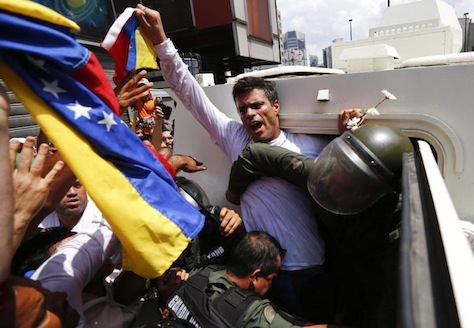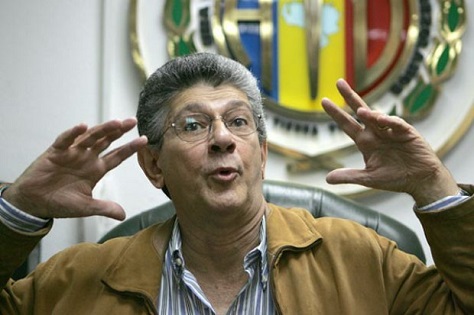Before Thursday’s jaw-dropping 77-minute free-form press conference, US president Donald Trump made a rare foray into Latin American politics on Wednesday night, publicly calling for the release of Leopoldo López, a Venezuelan opposition leader imprisoned by the chavista government since 2014. ![]()
It was a surprising move by Trump, who was having dinner Wednesday night with López’s wife, Lilian Tintori, and Florida senator Marco Rubio. Trump joins many figures from across the political spectrum over the last three years, including former US president Barack Obama and Spanish prime minister Mariano Rajoy, who renewed calls to release López on Thursday.
López, on the third anniversary of his arrest, is now at the heart of the Venezuelan opposition struggle in its daunting task of removing an increasingly undemocratic chavista regime through democratic means. Despite Trump’s call on Twitter to free López, a Venezuelan appeals court upheld the opposition leader’s sentence Thursday morning, and foreign minister Delcy Rodríguez chided Trump in response.
In February 2014, when protestors were already taking to the streets against Maduro’s government (and when the economic situation, though dire, was far better than today), López was leading the way calling for peaceful protests in hopes of toppling the government through show of popular disapproval. Those protests, however, turned deadly when police deployed lethal force against the protesters and 43 people died. López was promptly arrested and, months later in September 2015, found guilty of public incitement of violence. His imprisonment is widely considered to be politically motivated by international groups and figures ranging from the United Nations to the Dalai Lama, and his arrest was one of the reasons why the South American trading bloc, MERCOSUR, suspended Venezuela’s membership in December 2016, citing problems with human rights and the rule of law. Continue reading Overshadowed by scandal, Trump calls for López’s release in Venezuela


